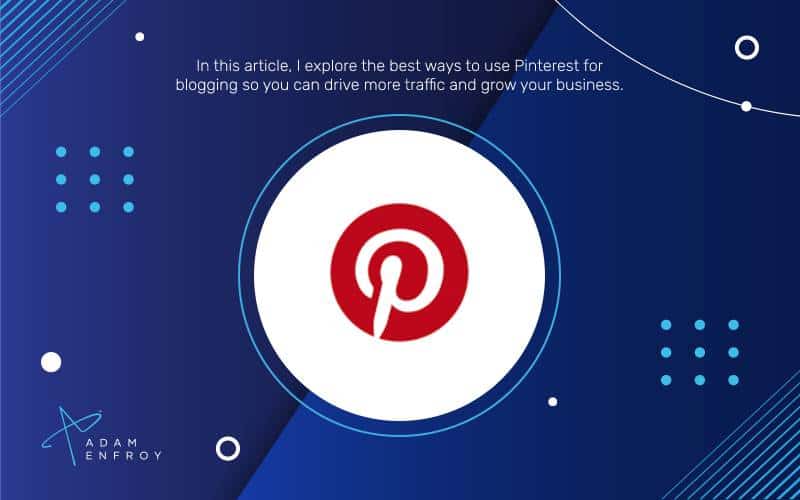Is Affiliate Marketing Legit? Scams & Opportunities In 2024

Is affiliate marketing even real, or is it just another internet scam that could leave you with empty pockets and a broken heart?
I had my fair share of doubts when I first started.
But let me tell you, there’s more to this affiliate marketing game than meets the eye, and it’s time to uncover the truth.
For now, it’s vital to know that if you choose the right programs, you could soon find yourself on your way to financial freedom.
So is affiliate marketing legit?
In this blog post, I will give you an honest answer to this question, dissect the pros and cons of affiliate marketing, and provide information on the scams you should be aware of when getting started.
- The Legality Of Affiliate Marketing
- How Does Affiliate Marketing Work?
- Discover Your Affiliate Marketing Niche
- How To Spot Deceitful Affiliates And Avoid Scams
- Being Aware Of Scams And Pyramid Schemes
- Specific Types Of Affiliate Marketing Scams
- The Earning Potential Of Affiliate Marketing
- Pros And Cons Of Affiliate Marketing
- Ethical Considerations In Affiliate Marketing
- Impact Of Technology On Affiliate Marketing
- Wrap Up.
The Legality Of Affiliate Marketing

When considering an affiliate offer, go beyond the sales pitch and check for real user experiences.
Look for reviews from previous customers of the product or service.
If you see a lot of complaints about unsatisfied customers, it’s a red flag and not worth promoting.
Social media can also be a good source of feedback on products.
Search for related hashtags and see what people say about the product or service.
Research recent case studies related to the product or service you want to promote.
Then dig around to find the answers to these questions:
- Did the offer convert well?
- What was the average earning per click?
- Are there any complaints of delayed or declined commission payments?
This information can help you make an informed decision about whether to promote the offer or not.
Avoid falling for exaggerated claims without asking for evidence.
Some offers promise huge earnings, but the reality is often far from it.
Such claims should not sway you without seeing proof of such earnings.
Reputable companies will generally provide proof of earnings in the form of earnings reports, screenshots, or testimonials from affiliates who have successfully promoted their products.
Stick with reputable companies and proven products for peace of mind.
Look for companies with a long operating history and a proven track record of success.
Also, check to see if the company has a refund policy if you or the consumer are unsatisfied with the product.
Lastly, always remember that affiliate marketing is not a get-rich-quick scheme.
Building a successful affiliate marketing business requires hard work, dedication, and patience.
Promises of quick and easy earning should not sway you.
Instead, focus on providing value to your audience, building trust, and promoting products you believe in.
How Does Affiliate Marketing Work?
Affiliate marketing happens when you advertise someone else’s products or services and gain a commission on sales from your promotion.
Therefore, you can make money without creating your products or services.
Find products or services you believe in and create content around them.
Affiliate programs vary; some may require prior approval, while others may be open.
Thousands of legitimate affiliate programs exist, and many well-known brands have affiliate programs you can join.
Before diving into affiliate marketing, choosing the right programs is essential.
Look for programs that align with your interests, values, and audience.
It will help you create genuine content and recommendations that resonate with your audience.
Also, consider the commission rates, payment method, and cookie duration.
The commission rate should be fair for your promotion and marketing efforts, the payment method should work for you, and the cookie duration should be long enough to give potential customers time to purchase.
By finding the right programs, you can maximize your earnings potential.
Once you have joined an affiliate program, the next crucial step is to create high-quality content that will help promote the products or services.
It can be through blog posts, social media, emails, or videos.
Your content should highlight the features and benefits of the products or services you are promoting and provide value to your audience.
The best way to create valuable content is to honestly share your experience and opinions about the products or services.
Your audience will appreciate your honesty and more likely trust your recommendations.
One thing to remember is that affiliate performance-based marketing is not a get-rich-quick scheme.
It requires effort, time, and dedication to succeed.
You should not expect to see results overnight; instead, focus on consistently creating valuable content.
By building trust with your audience and providing value, you can establish yourself as a reputable affiliate marketer and earn income for years.
Discover Your Affiliate Marketing Niche

Choosing the right niche is the foundation of successful affiliate marketing.
As an affiliate marketer, you’ll promote products within a specific niche, such as health, beauty, travel, or technology.
Choosing a niche that resonates with you and that you are passionate about ensures you’re not just mindlessly promoting products and can effectively engage your audience.
Brainstorm and research niches until you find the one that aligns with your interests, knowledge, and passions.
Once you’ve identified your niche, the next step is to sign up with a reputable affiliate program.
Many big brands have affiliate programs like Amazon Associates, eBay Partner Network, or Shopify Affiliate Program.
A reputable affiliate program should have a good track record, offer competitive commission rates, and provide reliable reporting tools.
Driving traffic to your affiliate links is crucial to earning revenue.
Therefore, you have to choose the right promotional channels strategically.
Popular marketing channels include social media platforms like Facebook, Twitter, and Instagram and content marketing channels like blogs and podcasts.
Choose the channels that give you the highest reach based on your niche and target audience.
Your content is an excellent way to promote affiliate links creatively.
As an affiliate marketer, your content should be informational, entertaining, and persuasive.
As you create your content, weave in relevant affiliate links within your post, include ad banners, or add buttons to encourage readers to take action.
Promoting your content as effectively as possible across various marketing channels is essential.
It increases exposure to your content and, in turn, your affiliate links.
Use tools like social media ads, email marketing, and SEO to get your content in front of more people.
Use engaging visuals and calls to action to capture your audience’s attention and inspire them to click through.
The bottom line is that you shouldn’t expect overnight success with affiliate marketing.
A long-term approach is essential to earn steady revenue from affiliate marketing.
Once you’ve mastered the basics, experiment with new promotional channels, niches, and product offerings to optimize your earnings.
Stay consistent, track your metrics, and keep learning.
How To Spot Deceitful Affiliates And Avoid Scams
Affiliate marketing has become a popular way of making money online, with more and more people signing up to promote products and services as affiliates.
However, this popularity has also attracted deceitful affiliates who sell outdated or unethical products or services, aiming to profit from selling courses rather than genuinely helping others.
Spotting deceitful affiliates can be challenging, but if you’re aware of certain red flags, you can avoid scams and succeed in affiliate marketing.
Unrealistic promises are among the most prominent warning signs of a fraudulent affiliate.
Beware of those who promise a “get rich quick” scheme or offer a high rate of commissions without any work or effort.
Remember, affiliate marketing is not a magic formula; it requires significant time and effort to succeed.
Another way to spot deceitful affiliates is by a lack of proof.
A reliable affiliate marketer can always back up their claims with evidence.
Look out for those without statistics or verification or whose product or service testimonials seem phony.
Also, check the social network channels for reviews about the promoter.
Real-world consumer feedback is an excellent transparency measure.
High-pressure sales tactics can also be a warning sign of a fraudulent affiliate program.
Be cautious if you encounter an affiliate program that pressures you to buy a product or course immediately.
A reputable affiliate program should provide adequate time for deciding without pressuring the consumer.
One of the best ways to avoid scams is to conduct thorough research before joining an affiliate program.
Check the reputation of the affiliate promoter on social networks like LinkedIn or join relevant affiliate marketing groups.
Also, read reviews and testimonials from affiliates that promote the product or service.
Reading reviews gives you an idea of the affiliate promoter’s reputation and their products or services.
Being Aware Of Scams And Pyramid Schemes

Affiliate marketing is an online business model that allows you to promote products and earns commissions for successful sales.
Many reputable companies offer affiliate marketing programs to increase sales and reach more customers.
However, not all affiliate marketing programs are equal, and some may resemble pyramid schemes or MLMs (multi-level marketing) that aim to make money off of recruits rather than selling actual products.
You should watch for recruiting-focused programs with ambiguous income models and negative online feedback to avoid falling for similar scams.
MLMs usually involve multi-tiered commissions that reward members for their sales and their recruits’ sales.
While this can be a legitimate business model, some MLMs may require members to purchase expensive products, training, or licenses upfront or focus mainly on recruiting new members rather than selling actual products.
Moreover, some MLMs may use aggressive marketing tactics and pressure or guilt-trip members to recruit friends and family members, which can hurt relationships and reputations.
To avoid pyramid schemes and MLMs, you should decline upfront expenses and research the company’s reputation and legal standing.
Legitimate affiliate marketing programs don’t require you to pay any fees to join or promote their products, and they usually provide clear guidelines and tools to help you succeed.
Before signing up for any affiliate marketing program, check for reviews and feedback from other members or online communities.
You can also search for information about the program’s ownership, registrations, or affiliations with industry organizations.
Specific Types Of Affiliate Marketing Scams
With the growing popularity of affiliate marketing, it’s becoming more difficult to spot scams and protect your business from fraudulent affiliates.
While the following scams might not apply to you as an affiliate, it’s good to be aware of what affiliate companies go through to ensure you don’t do any of the following.
In doing so, you could be risking your reputation, credibility, and the trust of your customers.
Here are some of the most common affiliate marketing scams to watch out for:
Click Fraud
Click fraud is a common affiliate marketing scam and occurs when affiliates generate clicks on their links without interest in the product or service they promote.
In turn, the advertiser is deceptively charged for these clicks.
To spot click fraud, affiliate companies:
- monitor traffic sources
- compare conversion rates
- use fraud detection tools
- track IP addresses
- study user behavior
You can detect abnormal clicks or patterns and stop bad affiliates.
Lead Fraud
Lead fraud occurs when affiliates submit low-quality leads with fake or incorrect information to receive payouts.
To prevent this, affiliate companies:
- check the lead quality and traffic sources regularly
- look for duplicates or odd patterns
- monitor conversion rates
- use lead validation tools to double-check and catch fake leads.
Sale And Transaction Fraud
Sale and transaction fraud occurs when fraudulent affiliates make sales with stolen information and then disappear after receiving their payouts.
To watch out for this, watch for unusual transactions, check refund rates, and compare billing and shipping information.
Doing so lets you detect if the transaction is legitimate or fraudulent.
URL Hijacking (Typosquatting)
URL hijacking occurs when an affiliate buys a domain similar to the advertiser’s domain or mimics their website (Typosquatting).
To prevent this, companies analyze referral domains and traffic sources, talk with affiliates, and check for domain typos.
They can also protect their domain by registering common typo variations and taking legal action if necessary.
Cookie Stuffing
Cookie stuffing occurs when affiliates use fraudulent methods to load cookies onto the user’s browser without their knowledge or consent.
To prevent this, companies examine traffic generation methods, use fraud detection tools, and set click limits.
Similar to lead fraud, regularly monitoring lead quality can ensure that affiliates are not involved in cookie stuffing.
The Earning Potential Of Affiliate Marketing

Affiliate marketing is a business model that rewards affiliates for bringing new customers to businesses.
Merchants own and promote the product online in collaboration with successful affiliate marketers.
If a customer purchases a product using an affiliate’s link, the affiliate earns a commission from the merchant.
It’s a legitimate business model widely accepted globally, and many big brands like Amazon, Alibaba, and Walmart are actively indulging in affiliate marketing.
The earning potential of affiliate marketing is vast and differs from person to person.
There are no fixed rules or restrictions on how much a person can earn.
Typically, affiliates earn a commission ranging from 5% to 30%.
However, some high-ticket affiliate programs offer a commission rate as high as 50% or even more.
The earning potential is unlimited in affiliate marketing, depending on the affiliate’s hard work, online marketing strategy, and consistency.
Success in affiliate marketing is not just about promoting products or referring customers to the merchant’s site.
It demands a comprehensive understanding of the affiliate marketing industry, the target audience, and the product niche.
To be successful, one needs to provide value to their audience and create a loyal audience base.
Producing helpful content, building an email list, and engaging with the audience are effective ways of building a solid affiliate marketing presence.
Pros And Cons Of Affiliate Marketing
Here are some of the pros and cons of affiliate marketing that you should consider before getting into it.
Pros Of Affiliate Marketing
One significant advantage of affiliate marketing is the potential for passive income.
Once you set up your affiliate links and begin promoting products, you can continue to earn a commission on any sales made through those links, even if you’re not actively promoting the products.
Therefore, you can earn money while you sleep, which is one of the main attractions of affiliate marketing.
Affiliate marketing is easy and requires no special skills or expertise.
It’s also flexible, which means you can promote products you’re passionate about and resonate with your audience.
Cons Of Affiliate Marketing
While there are many advantages to affiliate marketing, there are also some potential drawbacks.
One of the main disadvantages is that the earnings potential can be limited, mainly if you’re only promoting low-priced products.
Additionally, there is a risk of over-promoting products and coming across as spammy or inauthentic, which can lead to a loss of trust from your audience.
Finally, affiliate marketing requires ongoing effort and maintenance, so you must continually promote products and build your audience to see long-term success.
Ethical Considerations In Affiliate Marketing
Ethical considerations are crucial when it comes to affiliate marketing.
Unfortunately, affiliate marketing fraud is common, and affiliate marketing scams happen far too often.
As a new affiliate, avoid affiliate marketing scams and be aware of some of the most common ones, such as bots and credit card fraudsters.
However, with the correct practices in place, it is worth it to become an affiliate marketer, as many success stories show that it’s possible to earn a lot of money through affiliate commissions.
Transparency is vital in ethical affiliate marketing, where one should avoid fake products and dishonest claims.
It’s crucial to ensure that any campaigns are legitimate and avoid falling prey to even more common affiliate marketing scams.
Overall, being aware of the most common affiliate marketing scams and practicing ethical affiliate marketing can help ensure that affiliate marketing remains a legitimate and profitable industry.
Impact Of Technology On Affiliate Marketing

With rapid technological advancements, affiliate marketing has evolved and expanded its impact on digital marketing.
Social media has become increasingly crucial in affiliate marketing, with influencers and bloggers using their online platforms to drive traffic to an affiliate marketing website.
Additionally, automation through apps and bots has made it easier for affiliate networks to manage and track affiliate traffic and sales.
Pay-per-click and search engine marketing tools have also become crucial in optimizing one’s affiliate website, helping increase product visibility and drive more sales.
Furthermore, future technologies and integrations are shaping how affiliate marketing will operate.
With AI affiliate marketing, retailers can use machine learning algorithms to track and target more customers with personalized offers.
Despite the increasing use of technology in affiliate marketing, it remains a legitimate and effective way for businesses to promote their products online.
Wrap Up.
Affiliate marketing is a great way to generate passive income and promote products that you are passionate about.
However, it requires dedication and ongoing effort to be successful.
It’s essential to consider both the pros and cons of affiliate marketing when deciding whether or not it is the right fit for you.
Affiliate marketing can be an excellent opportunity to earn money online with the right mindset and strategy.
Further reading on AdamEnfroy.com: Here are some of the best affiliate marketing courses you can take to become a successful affiliate marketer.
Additionally, if you are looking for AI affiliate books to take your business to the next level, these are my top recommendations.





